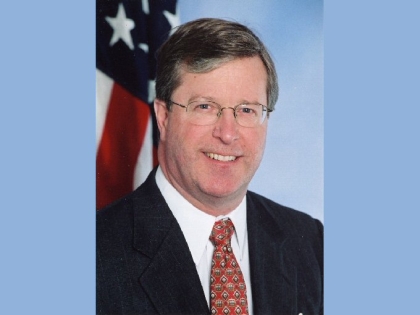
Senate Acts Against Dangers On The Internet
Albany, N.Y.-- On the heels of action earlier this year to restrict the access sex offenders have to social networking sites on the Internet, the State Senate approved today legislation co-sponsored by Senator George H. Winner, Jr. (R-C-I, Elmira) to further combat cases of child pornography and child sexual abuse fueled, in large measure, by the continued rise of the Internet.
Winner said that the legislation grew out of a report he and his Senate colleagues released last year, "Protecting Children in the Internet Age."
"We’re taking aim at the No. 1 danger on the Internet," said Winner. "Our goal is to fight back against some of the worst of what our society offers online."
The Senate unanimously approved legislation (S.6747) Winner co-sponsors called the "Child Sexual Abuse and Exploitation Prevention Act of 2008." It calls for aggressive measures to protect children from the dangers posed by Internet predators, child pornography and child sexual abuse. Specific provisions include:
> tougher penalties for promoting child prostitution;
> increased penalties for producing child pornography;
> strengthening penalties where a sex crime against a child has been committed using a computer or computer service;
> increasing the penalty for persons who permit their premises to be used for child prostitution;
> allowing the admission of business records into evidence in child pornography grand jury proceedings via affidavit;
> Allowing a "non-judicial" subpoena to be issued by a district attorney or the Attorney General for child pornography via the Internet; and
> Requiring local social services districts, when possible, to establish safe houses for sexually abused children.
The legislation must be approved by the Assembly and be signed by Governor David Paterson before becoming law. It currently has no Assembly sponsor.
"Protecting Children in the Internet Age," prepared by the Senate Task Force on Critical Choices, highlights the spread of child pornography, now estimated to be a $2- to $3-billion-a-year industry. The possession or distribution of child pornography is illegal under federal law and in all 50 states, but many researchers and law enforcement authorities have noted an alarming increase in these crimes largely resulting from the rapid growth in the use of the Internet and modern technologies.
The report also highlights the strong link between those who possess child pornography and individuals who sexually abuse children. Because of this strong link – and because the conviction rate for child pornography possession is nearly 100 percent – the report emphasizes the importance of cracking down on child pornography as a critical part of any overall strategy to keep children safe from sexual offenses.
Earlier this year the Senate approved a measure advanced by state Attorney General Andrew Cuomo to combat online sexual predators through what’s known as the Electronic Security and Targeting of Online Predators (e-STOP) Act. The e-STOP Act, which is expected to become law, is currently before the full Assembly. Among other provisions, the e-STOP Act will require sex offenders to register their e-mail addresses, instant message screen names and other online identifiers with the state Division of Criminal Justice Services (DCJS). Online social networking companies like MySpace and Facebook will be able to access this DCJS information so that they can prescreen and block access by convicted sex offenders, as well as notify law enforcement authorities of potential violations of law and threats to public safety.



